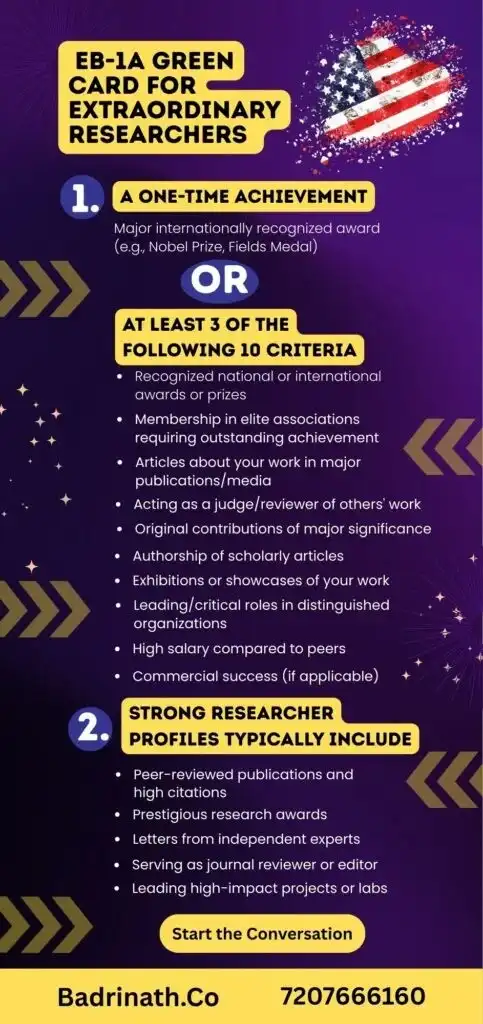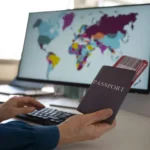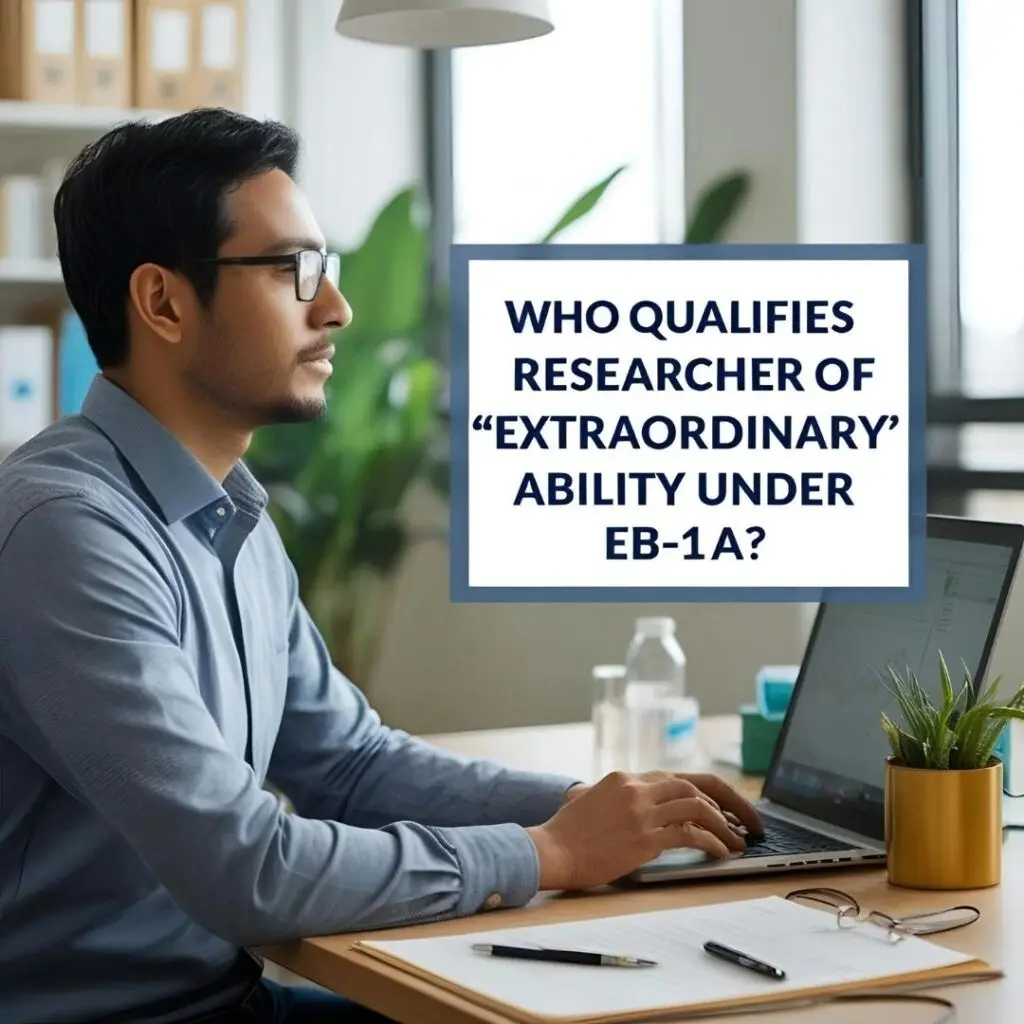EB-1A visa category, Either researchers of “extraordinary ability” must demonstrate sustained national or international acclaim and recognition in their field. Basically this is a prestigious immigration classification that doesn’t require labor certification or a job offer.
The EB-1 Extraordinary Ability category offers one of the fastest and most prestigious immigration pathways to the United States, particularly attractive for outstanding researchers, scientists, and academic professionals. Unlike other employment-based green card categories, EB-1A does not require a job offer or employer sponsorship, making it ideal for individuals who have reached the very top of their field.
Candidates must exhibit consistent national or international recognition and offer solid proof of their accomplishments in order to be eligible. But in order to meet the USCIS requirements, you must strategically prove your impact, recognition, and leadership in your field in addition to your academic credentials.
In this guide, we’ll break down the key qualification criteria for the EB-1A category, explain what counts as strong evidence, and offer expert tips for building a compelling petition as a researcher or PhD holder.

Why EB-1 Matters for Researchers
For international researchers and PhD graduates:
- The EB-1A is faster than EB-2 NIW (National Interest Waiver).
- Priority dates for EB-1 are often current, reducing wait time.
- It enhances career mobility and long-term stability in the U.S.
However, the EB-1A has stringent eligibility standards and requires clear, compelling documentation of sustained acclaim in your field.
Core Requirements for for HB-1A
Moreover to qualify as a researcher with extraordinary ability, you must:
- First, exhibit exceptional talent by continuously receiving national or worldwide recognition in the fields of business, education, athletics, the arts, or the sciences.
- Basically, it provide evidence that you will continue working in your area of expertise
- Demonstrate how your admission will significantly advance American interests.
Evidence Requirements for HB-1A
You have to either complete at least three of the ten requirements listed below, or you have to show proof of a one-time accomplishment (such a Nobel Prize or other significant, globally known prize).www.uscis.gov
- Being recognized nationally or internationally for your achievements in your field with lesser distinctions or awards.
- Membership in groups that require their members to perform at a high level.
- Information about you that has been published in academic journals, trade magazines, or other important media.
- Proof that you have been asked to evaluate other people’s work, either alone or in a group.
- Additional proof of significant original contributions to science, academia, or business
- Composing scholarly papers for professional or trade magazines
- Additionally, showing your work in showcases or exhibitions for the arts (mostly in the arts)
- playing a crucial or leading role in prestigious organizations
- High pay or other remuneration that is noticeably higher than that of others in the field
- Performance-related commercial success (if applicable)
Recent Policy Clarifications for HB-1A
USCIS has recently issued policy guidance to clarify evidence evaluation for EB-1A petitions, particularly relevant to researchers:www.uscis.govwww.uscis.gov
- Team awards can be considered under the prizes/awards criterion
- Past memberships (not just current) count toward the membership criterion
- Published material about your work no longer needs to explicitly demonstrate the value of your contributions
- There are particular implications for people working in STEM fields.

Common Challenges
- USCIS may reject petitions that are technically correct but lack persuasive narrative or evidence of impact.
- Letters from collaborators or former supervisors are often discounted — independent endorsements are critical.
- You must not only show what you’ve done, but why it matters on a national or international scale.
SEO Keywords
- EB-1A for researchers
- Extraordinary ability Green Card
- Self-petition visa USA
- Researcher immigration USA
- USCIS EB-1A criteria
- Academic Green Card USA
- High citation Green Card
- Green Card for scientists
- EB-1A vs EB-2 NIW
- Peer review immigration visa
Read more about the topic
External Links:
EB1 Extraordinary Ability Requirements
Internal Links:







